Supreme Court begins election year term full of big cases
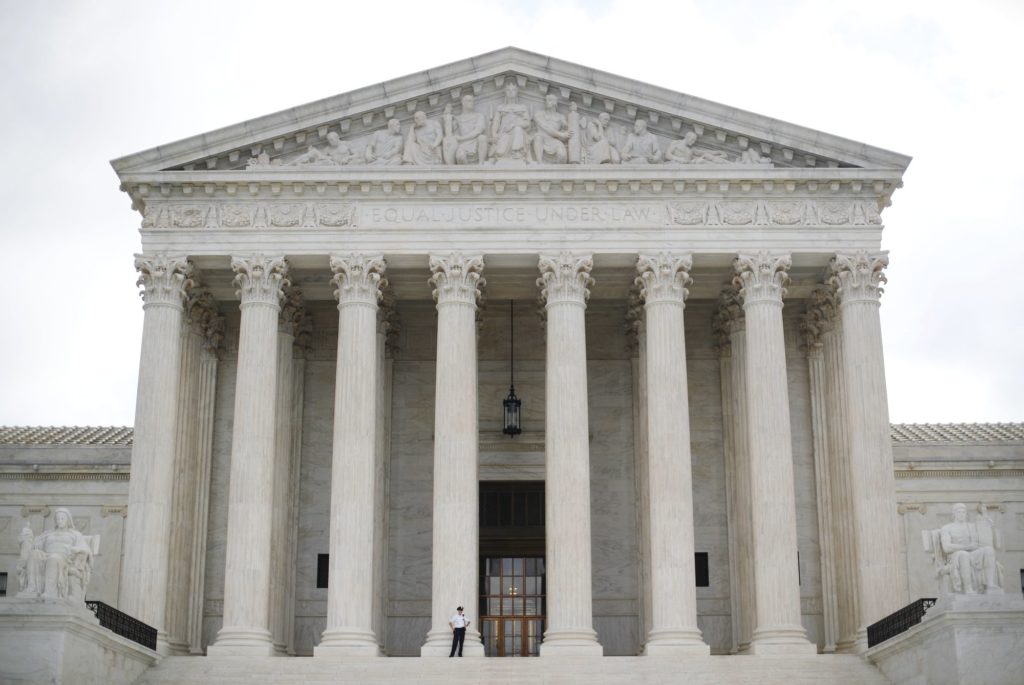
The justices are returning to the Supreme Court bench for the start of an election year term that includes high-profile cases about abortions, protections for young immigrants and LGBT rights. The court meets Monday morning for its first public session since late June. First up is a death penalty case from Kansas about whether states can abolish an insanity defense for criminal defendants. The justices also will hear arguments Monday in a challenge to a murder conviction by a non-unanimous jury in Louisiana. The term could reveal how far to the right and how fast the court’s conservative majority will move, even as Chief Justice John Roberts has made clear he wants to keep the court clear of Washington partisan politics. The court is beginning its second term with both of President Donald Trump’s Supreme Court appointees, Justices Neil Gorsuch and Brett Kavanaugh, on board. The justices could be asked to intervene in disputes between congressional Democrats and the White House that might also involve the possible impeachment of the Republican president. Roberts would preside over a Senate trial of Trump if the House were to impeach him.Its biggest decisions are likely to be handed down in late June, four months before the election. The court also could be front and center in the presidential election campaign itself, especially with health concerns surrounding 86-year-old Justice Ruth Bader Ginsburg.For now, though, the court has plenty of significant cases to deal with, including whether federal civil rights law that bars workplace discrimination on the basis of sex covers LGBT people. The justices will hear arguments Tuesday in two cases on that topic, their first foray into LGBT rights since the retirement of Justice Anthony Kennedy, who wrote all the court’s major gay-rights rulings. Next month, the fate of the Deferred Action for Childhood Arrivals program is in front of the justices. Lower courts have blocked Trump from ending the Obama-era program, which has shielded roughly 700,000 people from deportation and provided them with permits to work.During the winter, the justices will take up a challenge to a Louisiana law that would force abortion providers to have admitting privileges at local hospitals. It’s another test of whether the change in the court’s composition will result in a different outcome. With Kennedy in the majority, the court in 2016 struck down a virtually identical Texas law. By Mark Sherman Associated Press Republished with the permission of the Associated Press.
Trump administration’s use of biological definition of gender leaves some upset
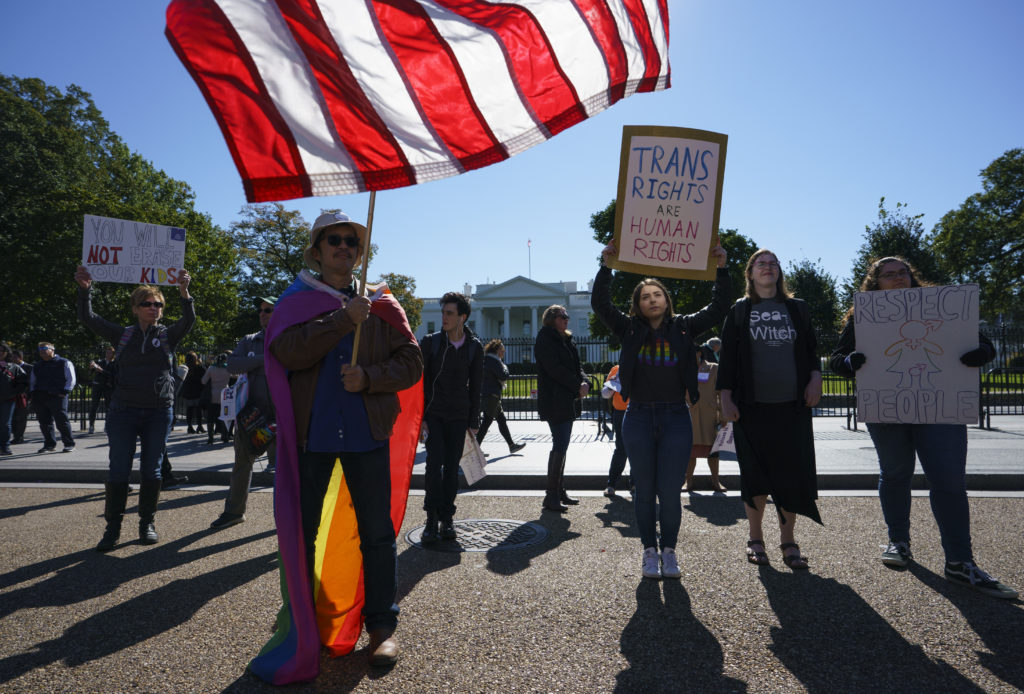
LGBT leaders across the U.S. reacted with fury Monday to a report that the Trump administration is considering adoption of a new definition of gender that would effectively deny federal recognition and civil rights protections to transgender Americans. “I feel very threatened, but I am absolutely resolute,” Mara Keisling, executive director of the National Center for Transgender Rights, said at a news conference convened by more than a dozen activist leaders. “We will stand up and be resilient, and we will be here long after this administration is in the trash heap.” The activist leaders, speaking amid posters reading “#Won’tBeErased“, later addressed a protest rally outside the White House. On Sunday, The New York Times reported that the Department of Health and Human Services was circulating a memo proposing that gender be defined as an immutable biological condition determined by a person’s sex organs at birth. The proposal would define sex as either male or female, and any dispute about one’s sex would have to be clarified through genetic testing, according to the Times’ account of the memo. President Donald Trump addressed the matter briefly as he left the White House for a political trip to Houston, but left unclear how his administration plans to proceed. “We have a lot of different concepts right now,” Trump said. “They have a lot of different things happening with respect to transgender right now — you know that as well as I do — and we’re looking at it very seriously.” Trump added: “I’m protecting everybody.” The Cabinet agency had acknowledged months ago that it was working to rewrite a federal rule that bars discrimination in health care based on “gender identity.” It cited a Texas-based federal judge’s opinion that the original rule went too far in concluding that discrimination based on gender identity is a form of sex discrimination, which is forbidden by civil rights laws. The department said Monday it would not comment on “alleged leaked documents.” It did release a statement from Roger Severino, head of its Office for Civil Rights, saying his agency was reviewing the issue while abiding by the 2016 ruling from the Texas-based federal judge, Reed O’Connor. LGBT activists, who pledged legal challenges if the reported memo leads to official policy, said several other courts had issued rulings contrary to O’Connor’s. “For years, courts across the country have recognized that discriminating against someone because they are transgender is a form of sex discrimination, full stop,” said Diana Flynn, Lambda Legal’s litigation director. “If this administration wants to try and turn back the clock by moving ahead with its own legally frivolous and scientifically unsupportable definition of sex, we will be there to meet that challenge.” Shannon Minter, a transgender attorney with the National Center for Lesbian Rights, called the reported plan a “cynical political ploy to sow discord and energize a right-wing base” before the Nov. 6 election. UCLA legal scholar Jocelyn Samuels, who ran the HHS civil rights office in the Obama administration, said the Trump administration would be going beyond established law if it adopted the policy in the memo. “What they are saying is you do not get to decide your sex; it is the government that will decide your sex,” said Samuels. For LGBT-rights leaders, it’s the administration’s latest attack on transgender Americans. Among the others are an attempt to ban them from military service; a memo from Attorney General Jeff Sessions concluding that civil rights laws don’t protect transgender people from discrimination on the job; and the scrapping of Obama-era guidance encouraging school officials to let transgender students use school bathrooms that matched their gender identities. Omar Gonzalez-Pagan, a lawyer with Lambda Legal, said the proposed rule change appears to still be undergoing White House review. It would need to be signed off by the departments of Justice, Labor and Education, which are also involved with civil rights enforcement. He said “the purpose of this rule is to erase transgender people from existence, to write them off from federal law, and to institute a definition that is contrary to case law, contrary to medical and scientific understanding, and contrary to the lived experience of transgender people.” While social mores enter into the debate, medical and scientific experts have long recognized a condition called “gender dysphoria” — discomfort or distress caused by a discrepancy between the gender that a person identifies as and the gender at birth. Consequences can include severe depression. Treatment can range from sex-reassignment surgery and hormones to people changing their outward appearance by adopting a different hairstyle or clothing. According to an estimate by the Williams Institute at the UCLA School of Law, there are about 1.4 million transgender adults in the United States. Republished with permission from the Associated Press.
Alabama ranks 6th highest for LGBTQ discrimination complaints in workplace
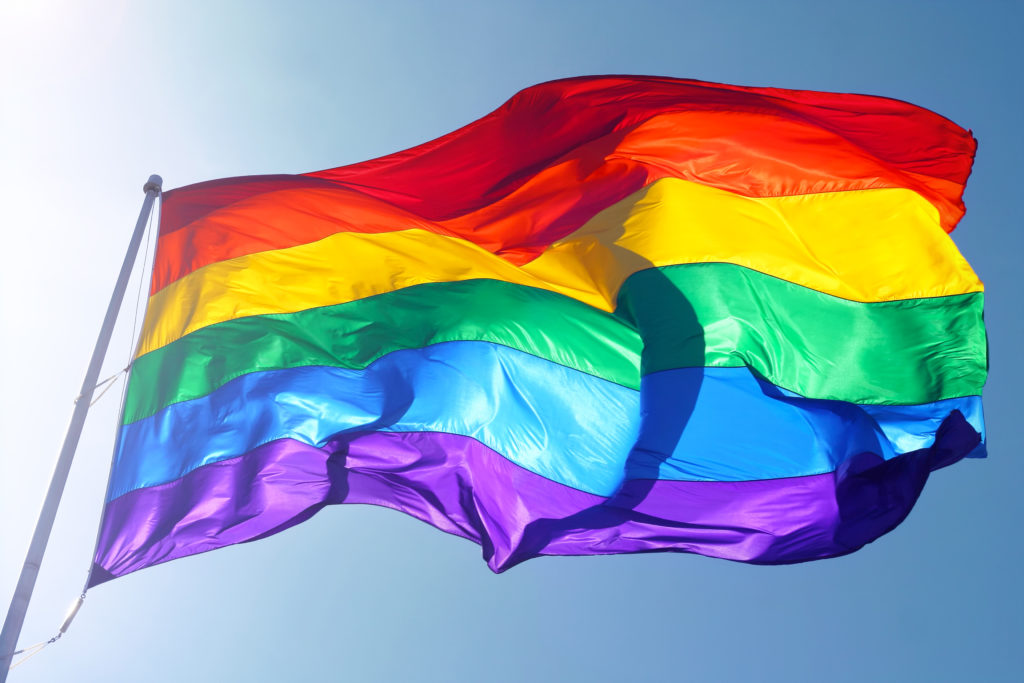
According to a summertime report, Alabama employers saw the sixth-highest rate of complaints for workplace discrimination from LGBTQ employees in the nation. The report by InsuranceQuotes.com found between 2014 and 2017 there were 3.2 discrimination charges made per 100,000 Alabama residents, for a total of 167 charges. To find these numbers, analysts studied statistics from the U.S. Equal Employment Opportunity Commission, analyzing complaints related to gender identity and sexual orientation in recent years. Their findings reveal patterns in employee activism and how often they actually succeed in obtaining compensation. “Cumulatively, LGBTQ-related complaints increased substantially between 2014 and 2015 and again between 2015 and 2016. In 2017, however, complaints declined slightly from the year before,” the report reads. How Alabama compares
More LGBT issues loom as justices near wedding cake decision

A flood of lawsuits over LGBT rights is making its way through courts and will continue, no matter the outcome in the Supreme Court’s highly anticipated decision in the case of a Colorado baker who would not create a wedding cake for a same-sex couple. Courts are engaged in two broad types of cases on this issue, weighing whether sex discrimination laws apply to LGBT people and also whether businesses can assert religious objections to avoid complying with anti-discrimination measures in serving customers, hiring and firing employees, providing health care and placing children with foster or adoptive parents. The outcome of baker Jack Phillips’ fight at the Supreme Court could indicate how willing the justices are to carve out exceptions to anti-discrimination laws; that’s something the court has refused to do in the areas of race and sex. The result was hard to predict based on arguments in December. But however the justices rule, it won’t be their last word on the topic. Religious conservatives have gotten a big boost from the Trump administration, which has taken a more restrictive view of LGBT rights and intervened on their side in several cases, including Phillips’. “There is a constellation of hugely significant cases that are likely to be heard by the court in the near future and those are going to significantly shape the legal landscape going forward,” said Shannon Minter, legal director of the National Center for Lesbian Rights. Several legal disputes are pending over wedding services, similar to the Phillips case. Video producers, graphic artists and florists are among business owners who say they oppose same-sex marriage on religious grounds and don’t want to participate in same-sex weddings. They live in the 21 states that have anti-discrimination laws that specifically include gay and lesbian people. In California and Texas, courts are dealing with lawsuits over the refusal of hospitals, citing religious beliefs, to perform hysterectomies on people transitioning from female to male. In Michigan, the American Civil Liberties Union filed suit against the state’s practice of allowing faith-based child placement agencies to reject same-sex couples. Advocates of both sides see the essence of these cases in starkly different terms. “What the religious right is asking for is a new rule specific to same-sex couples that would not only affect same-sex couples but also carve a hole in nondiscrimination laws that could affect all communities,” said Camilla Taylor, director of constitutional litigation at Lambda Legal, which supports civil rights for LGBT people. Jim Campbell of the Christian public interest law firm Alliance Defending Freedom said the cases will determine whether “people like Jack Phillips who believe marriage is the union of a man and a woman, that they too have a legitimate place in public life. Or does he have to hide or ignore those beliefs when he’s participating in the public square?” ADF represents Phillips at the Supreme Court. The other category of cases concerns protections for LGBT people under civil rights law. One case expected to reach the court this summer involves a Michigan funeral home that fired an employee who disclosed that she was transitioning from male to female and dressed as a woman. The 6th U.S. Circuit Court of Appeals ruled that the firing constituted sex discrimination under federal civil rights law. That court is one of several that have applied anti-sex discrimination provisions to transgender people, but the Supreme Court has yet to take up a case. The funeral home argues in part that Congress was not thinking about transgender people when it included sex discrimination in Title VII of the 1964 Civil Rights Act. A trial judge had ruled for the funeral home, saying it was entitled to a religious exemption from the civil rights law. “Congress has not weighed in to say sex includes gender identity. We should certainly make sure that’s a conscious choice of Congress and not just the overexpansion of the law by courts,” Campbell said. ADF also represents the funeral home. In just the past week, two federal courts ruled in favor of transgender students who want to use school facilities that correspond to their sexual identity. Those cases turn on whether the prohibition on sex discrimination in education applies to transgender people. Appeals in both cases are possible. In the past 13 months, federal appeals courts in Chicago and New York also have ruled that gay and lesbian employees are entitled to protection from discrimination under Title VII. Those courts overruled earlier decisions. Title VII does not specifically mention sexual orientation, but the courts said it was covered under the ban on sex bias. The Obama administration had supported treating LGBT discrimination claims as sex discrimination, but the Trump administration has changed course. In the New York case, for instance, the Trump administration filed a legal brief arguing that Title VII was not intended to provide protections to gay workers. It also withdrew Obama-era guidance to educators to treat claims of transgender students as sex discrimination. There is no appeal pending or expected on the sexual orientation issue, and there is no guarantee that the court will take up the funeral home’s appeal over transgender discrimination. The trend in the lower courts has been in favor of extending civil rights protections to LGBT employees and students. Their prospects at the Supreme Court may be harder to discern, not least because it’s unclear whether the court’s composition will change soon. Justice Anthony Kennedy, 81, has been the subject of retirement speculation, though he has not indicated he is planning to retire. When Justice Stephen Breyer turns 80 in August, he will join Kennedy and Justice Ruth Bader Ginsburg, 85, as octogenarians on the bench. If President Donald Trump were to replace any of those justices, the court probably would be much less receptive to LGBT rights. Even the landmark gay marriage ruling in 2015 that Kennedy wrote was a 5-4 decision. “We’re very concerned about the composition of the federal bench. Under the Trump administration, we’ve seen a
Scott Dawson criticizes grant to LGBT group
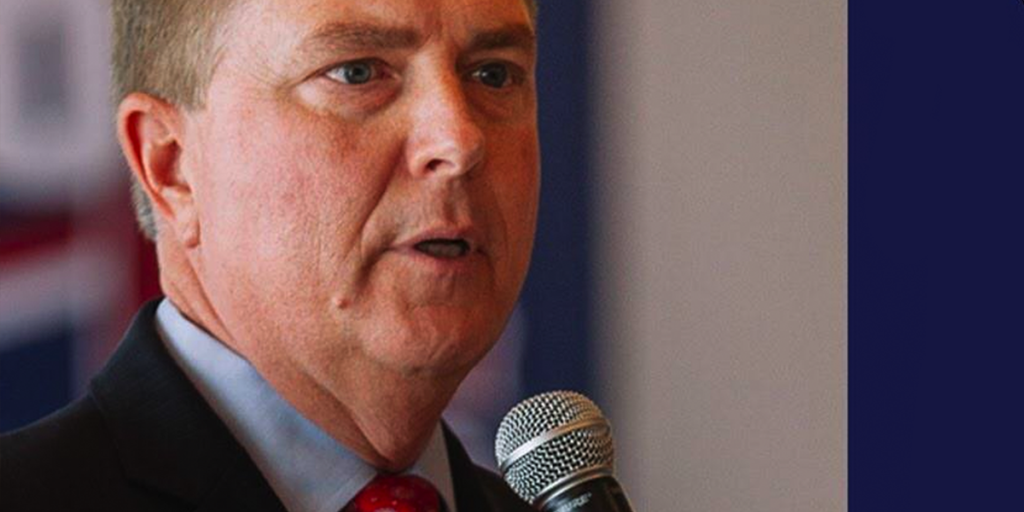
An evangelist running against Alabama Gov. Kay Ivey is criticizing anti-violence grants the state gave to a support organization for gay and transgender individuals. Scott Dawson in a Tuesday press conference said Ivey “betrays our values” with the grants worth nearly $800,000 to Free2Be. Dawson is challenging Ivey in the Republican primary. The nonprofit runs several support centers in the state. Grant paperwork indicated the money is to be used for violence prevention and support services. A telephone message to Free2Be’s director was not returned. An answering machine message indicated the group is temporarily closed. Ivey called the accusation “nonsense.” The GOP governor said while she doesn’t agree with the group’s “values,” the grant is entirely paid for with federal dollars and dates back to 2014. Republished with the permission of the Associated Press.
Senate bill seeks to remove anti-gay language from state’s sex education law
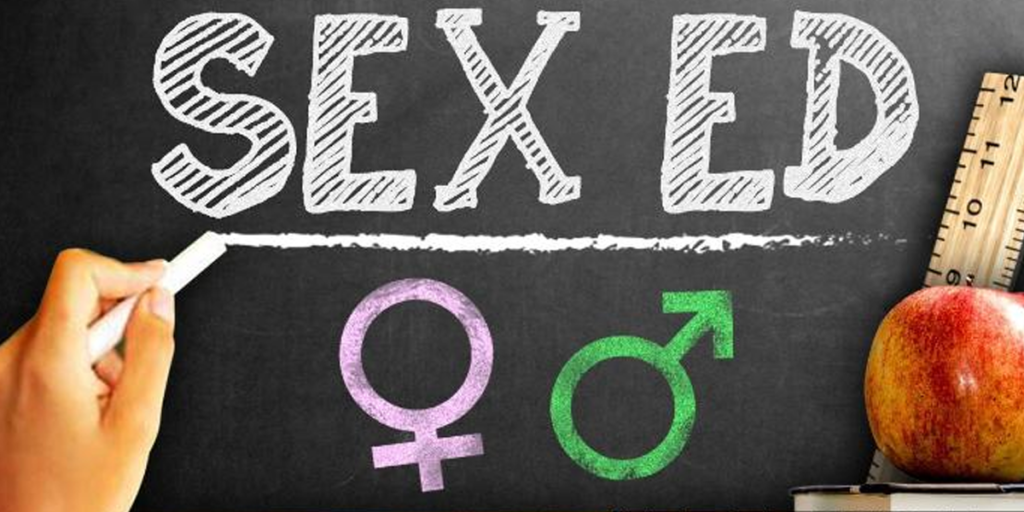
An Alabama Senate committee has approved a bill that would remove anti-gay language from the state’s sex education law. The Senate Education Policy Committee unanimously voted in support of SB269: the Alabama Youth Health Protection Act sponsored by Auburn-Republican state Sen. Tom Whatley on Wednesday. “If you’re teaching sex education, you’ll going to be medically accurate when you’re doing it,” Whatley told the committee. Specifically, it would strike language that says homosexuality is a lifestyle that’s not “acceptable to the general public.” An emphasis, in a factual manner and from a public health perspective, that homosexuality is not a lifestyle acceptable to the general public and that homosexual conduct is a criminal offense under the laws of the state. The language in the state current sex education law, above, was a reference to Alabama’s anti-sodomy law, which has been ruled unconstitutional. Whatley’s bill also maintains an emphasis on abstinence as the “only completely effective protection against unwanted unintended pregnancy, sexually transmitted diseases infections, and acquired immune deficiency syndrome (AIDS) human immunodeficiency virus (HIV) when transmitted sexually.”
Gay GOP group releases ad, urges ‘good Christians’ to oppose Roy Moore

The Log Cabin Republicans — the nation’s premier Republican organization representing LGBT conservatives and straight allies — has come out with a new ad calling on Christians to act on their morals and “stand up against the theocratic demagogue” that they consider United States Senate candidate Roy Moore to be. “Roy Moore has spent his entire career using his bigoted brand of Christianity as a weapon to relentlessly attack members of the LGBT community, all the while allegedly preying upon the most vulnerable in our society,” said Gregory T. Angelo, president of the Log Cabin Republicans. “Moore’s myopic faith prevents him from seeing that a significant number of LGBT individuals are devout Christians themselves, including many members of Log Cabin Republicans. Regardless of one’s sexual orientation or gender identity, it’s time for good Christians to do what good Christians do: REJECT Roy Moore.” Titled “Good Christians,” the LGBT group’s spot comes less than two weeks to the election between Moore and his Democratic opponent Doug Jones. “There is a war on Christianity happening right in our midst,” says the ad’s narrator. “Morals are decaying. The very fabric of America is being torn apart. Politicians are attacking our values. Our churches. Our children. It’s a time for choosing. We can’t stand on the sidelines any more. It’s time for good Christians to do what good Christians do. Reject Roy Moore.” Moore has been under fire since The Washington Post published an explosive report on Thursday Nov. 9 with the accounts of four women who claim he sexually pursued them when he was in his 30s and they were in their teens. Since that time, five more woman have come forward with similar accusations against Moore. Alabamans will choose between Moore and Jones in the special election on Dec. 12. Watch the ad below:
Businesses ask Supreme Court to take gay rights case
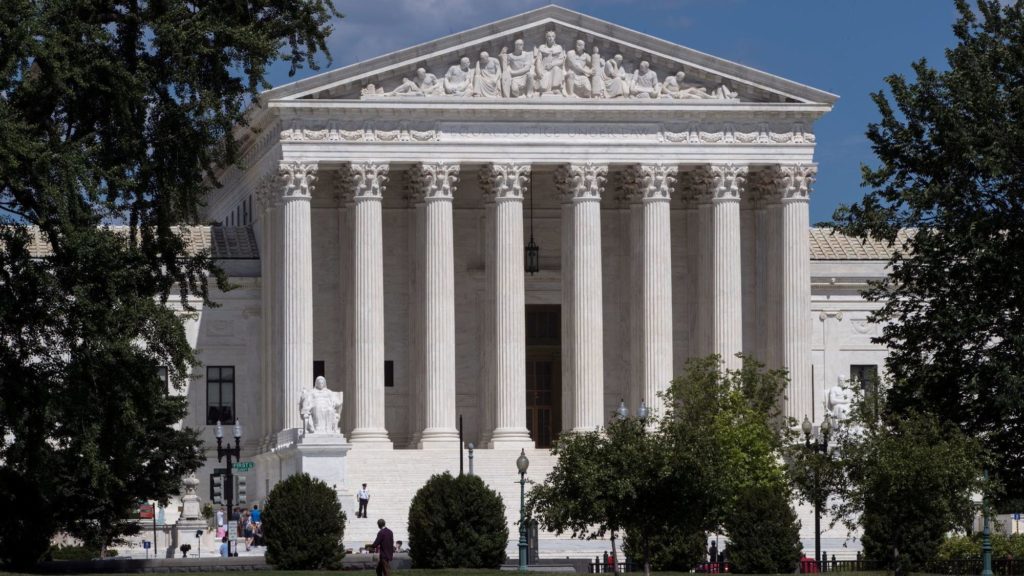
Some of America’s most well-known companies are urging the Supreme Court to rule that a federal employment discrimination law prohibits discrimination based on a person’s sexual orientation, a position opposite of the one taken by the Trump administration. The 76 businesses and organizations – including American Airlines, Apple, eBay, Facebook, Google, Starbucks and Microsoft – filed a brief Wednesday encouraging the high court to take up the issue. They want the court to take a case out of Georgia in which a gay woman who worked as a hospital security officer says she was harassed and punished for dressing in a male uniform and wearing her hair short. Jameka Evans, who worked at Georgia Regional Hospital at Savannah from 2012 to 2013, ultimately left her job and sued. The question in her case is whether a federal law barring workplace discrimination “because of…sex” covers discrimination against someone because of their sexual orientation. The Equal Employment Opportunity Commission under President Barack Obama took the view that it does. But President Donald Trump’s administration has argued that Title VII of the Civil Rights Act of 1964 bars discrimination based on gender but doesn’t cover sexual orientation. The businesses’ court filing says they and their employees would benefit if the court agreed to take the case and rule that Title VII covers sexual orientation discrimination. “Businesses’ first-hand experiences – supported by extensive social-science research – confirm the significant costs for employers and employees when sexual orientation discrimination is not forbidden by a uniform law, even where other policies exist against such discrimination,” the businesses wrote in their brief. The organizations that joined the brief also include two sports teams, the Tampa Bay Rays and the Miami Heat. The case out of Georgia is not unique. Most federal appeals courts in the past have ruled that “sex” means biological gender, not sexual orientation. But a federal appeals court in Chicago, the U.S. Court of Appeals for the 7th Circuit, ruled earlier this year that the law covers sexual orientation. In that case, a gay part-time community college instructor sued after she was repeatedly turned down for a full-time job and her part-time contract was not renewed. The New York-based U.S. Court of Appeals for the 2nd Circuit is also weighing the issue. Last month, the full court heard arguments in a case in which a skydiving instructor, Donald Zarda, claimed he was fired from his job after telling a client he was gay. He sued under the Civil Rights Act, but previous rulings have gone against Zarda, who died in an accident in Switzerland three years ago. A ruling in his case isn’t expected for some time. Republished with permission from the Associated Press.
Groups seek to halt Donald Trump transgender military policy change
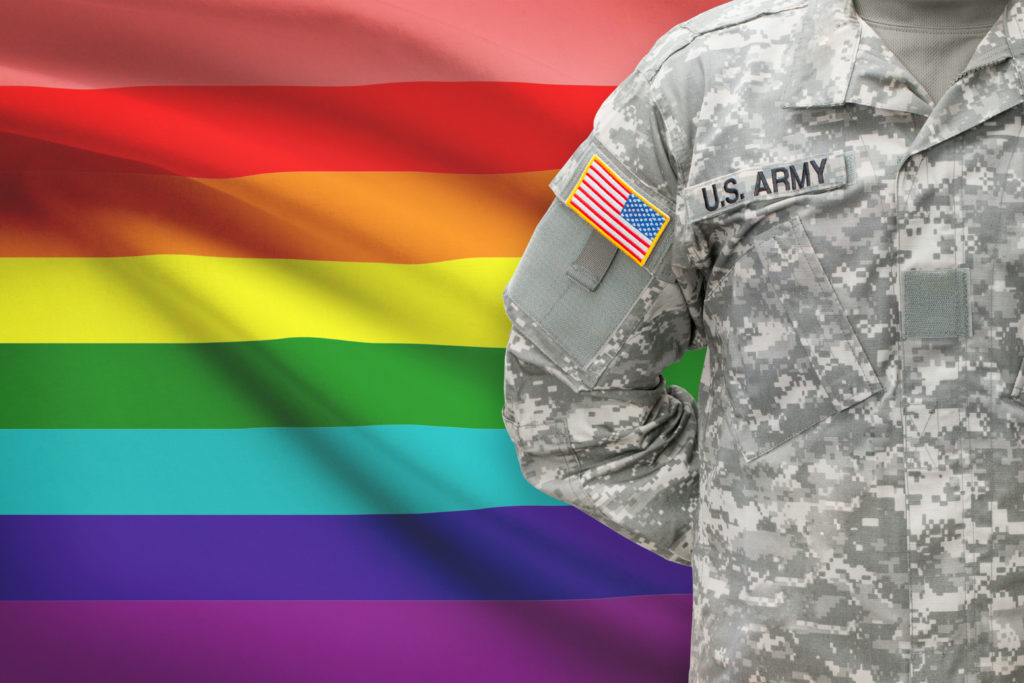
Two LGBT-rights organizations asked a federal judge in Washington on Thursday to bar President Donald Trump from changing the government’s policy on military service by transgender people. The groups, backed by several former military leaders, filed a motion asking the judge to grant a preliminary injunction to keep Trump from reversing course on a 2016 policy change that allowed transgender individuals to serve openly. Trump slammed that change in a memo last Friday and announced he was directing a return to the former policy under which service members could be discharged for being transgender. Trump directed the Pentagon to extend indefinitely a ban on transgender individuals joining the military, and he gave Defense Secretary Jim Mattis six months to come up with a policy on “how to address” those who are currently serving, leaving the door open to permitting their continued service. Until Mattis has made that determination, “no action may be taken against” the currently serving transgender individuals. Trump also directed Mattis to halt the use of federal funds to pay for sexual reassignment surgeries and medications, except in cases where it is deemed necessary to protect the health of an individual who has already begun the transition. Lawsuits challenging the changes have been filed in courts in Washington, Seattle and Baltimore. The Washington lawsuit was filed earlier this month after Trump wrote on Twitter in July that the federal government “will not accept or allow” transgender individuals to serve “in any capacity” in the military, statements that preceded his memo last Friday. The groups behind the lawsuit, GLBTQ Legal Advocates & Defenders (GLAD) and the National Center for Lesbian Rights, say the memo’s changes would violate service members’ constitutional rights to equal protection and due process. As part of the preliminary injunction motion filed Thursday, former military leaders said in court papers that changing the open service policy would be harmful. The former officials – including former Navy Secretary Ray Mabus, former Air Force Secretary Deborah Lee James and former Army Secretary Eric Fanning – served during the Obama administration, which in June 2016 changed longstanding policy to allow troops to serve openly as transgender individuals. Republished with permission from the Associated Press.
Jeff Sessions addresses group representing baker who refused to serve gay couple

Attorney General Jeff Sessions on Tuesday delivered a speech to the religious freedom group that is representing a Colorado baker who refused to bake a wedding cake for a gay couple in 2012. Sessions’ attendance at the closed-press Alliance Defending Freedom‘s (ADF) Summit on Religious Liberty in Orange County, Calif. is drawing criticism as advocacy groups and Democrats across the country are questioning why the leader of the U.S. Department of Justice (DOJ) agreed to speak at the ADF group at all. Founded by Dr. Bill Bright, ADF is best known for supporting socially conservative causes and advocating on behalf of religious freedom. Recently, the Supreme Court agreed to hear a case in which ADF is representing Colorado baker Jim Phillips. Phillips made national headlines in 2012 when he refused to create a wedding cake for a gay couple. He is now challenging Colorado’s nondiscrimination law, saying he should be allowed to refuse service to same-sex couples due to his religious beliefs. A spokesman for the Democratic National Committee (DNC) criticized Sessions’ decision to speak to the group. “You can judge a person by the company they keep and tonight – Attorney General Jeff Sessions is choosing to spend his time speaking in front of one of the country’s leading anti-LGBTQ hate groups,” Joel Kasnetz said. “Sessions’ appearance at this event, as the top law enforcement official in the country, brings into question whether the attorney general intends to protect all Americans.” “ADF has been extremely active in pushing for so-called ‘religious liberty’ laws around the country that allow Christians to discriminate against LGBT people,” said the Southern Poverty Law Center who in 2016 designated the ADF as a hate-group, on their website. “The nation’s top lawyer rallying with an anti-LGBTQ hate group? Outrageous,” the Human Rights Campaign (HRC), a civil rights group promoting LGBTQ equality, said in a blog post Wednesday. HRC was also troubled by the DOJ’s decision to keep Sessions’ remarks private. “The attorney general has every right to speak to a group like Alliance Defending Freedom,” commented David Stacy, Government Affairs Director of HRC. “What troubles us is that his remarks are being kept hidden from the public at the same time he has been tasked by the President with issuing religious discrimination policies that ADF has long promoted.” The DOJ did not respond to questions about whether the speech was in support for Phillips’ case.
Caitlyn Jenner calls Donald Trump transgender decision ‘a disaster’

Caitlyn Jenner is taking President Donald Trump to task for his administration’s reversal of a directive on transgender access to public school bathrooms. Jenner addresses Trump in a video posted Thursday night on Twitter. She says, “From one Republican to another, this is a disaster.” The Trump White House has ended a directive issued during Barack Obama’s presidency that told public schools to let transgender students use bathrooms and locker rooms of their chosen gender. Jenner is particularly critical of Attorney General Jeff Sessions, saying, “Apparently even becoming attorney general isn’t enough to cure some people of their insecurities.” Addressing Trump, the former Olympic champion says: “You made a promise to protect the LGBTQ community. Call me.” Jenner came out as a transgender woman in 2015. Republished with permission of The Associated Press.
What happens if Trump pulls transgender bathroom guidance?

The Trump administration could revise or withdraw an Obama-era directive requiring public schools to let transgender students use bathrooms and locker rooms that match their chosen gender identity. White House spokesman Sean Spicer said Tuesday the Justice Department is working on a new set of guidelines on bathroom access but offered no other details. “I think that all you have to do is look at what the president’s view has been for a long time, that this is not something the federal government should be involved in, this is a states’ rights issue,” he said. The Justice Department declined to comment. But Spicer’s comment stoked concerns among transgender-rights advocates about a reversal of the Obama administration’s protections. Here’s a look at the issue and what could happen: WHAT IS THE FEDERAL BATHROOM GUIDANCE FOR SCHOOLS? The Obama administration in May told public schools nationwide that they are obligated to treat transgender students in a way that matches their gender identity, even when records differ or it makes others uncomfortable. It was the administration’s determination that Title IX, the federal law prohibiting sex discrimination in education and activities, also applies to gender identity. About 150,000 youth — 0.7 percent— between the ages of 13 and 17 in the United States identify as transgender, according to a study by The Williams Institute at the UCLA School of Law. The Obama-era guidance held no force of law but sent a warning that schools could lose funding if they did not comply with the administration’s interpretation of the law. Republicans immediately pushed back, arguing it was an example of federal government overreach and the Obama administration meddling in local matters. Texas Lt. Governor Dan Patrick equated it to “blackmail” and said at the time that the state was ready to forfeit federal education money rather than comply with the guidance. Thirteen states sued to challenge the directive. A federal judge in Texas temporarily blocked the guidance in August, and the Trump administration this month said it would no longer fight to limit the injunction. WHAT COULD HAPPEN IF THE GUIDANCE IS WITHDRAWN? Advocates said federal law would still prohibit discrimination against students based on their gender or sexual orientation even without the Obama guidelines. “To cloak this in federalism ignores the vital and historic role that federal law plays in ensuring that all children (including LGBT students) are able to attend school free from discrimination,” Vanita Gupta, who was head of the Justice Department’s Civil Rights Division when the guidance was issued, said in a statement. Still, legal experts say a change in position could have consequences for unresolved court cases dealing with Title IX. The Supreme Court could decide to send a case about a transgender teen in Virginia back to a lower court. The high school senior was born female, but identifies as a male and wants to use the boys’ bathroom at his school. The high court is scheduled to hear the case in March. Courts are unsettled about whether, in the absence of guidance from the federal government, anti-discrimination laws require schools to allow students to use bathrooms and locker rooms based on their gender identity. The justices could direct lower courts to decide that issue. Similar lawsuits are still playing out across the country. “Some courts might say the fact that they go back and forth on this every time the administration changes, maybe we shouldn’t defer to it, maybe we should just decide for ourselves,” said Arthur Leonard, a professor at New York Law School who has studied LGBT legal history. WHAT WOULD THE CHANGE MEAN FOR SCHOOLS? A patchwork of state laws dealing with the bathroom issue will continue to emerge. Fifteen states have explicit protections for transgender students in their state laws, and many individual school districts in other states have adopted policies that respected such students on the basis of their gender identity, said Sarah Warbelow, legal director of the Human Rights Campaign. Just one state, North Carolina, has enacted a law restricting bathroom access to the sex at birth. But so far this year, lawmakers in more than 10 states are considering similar legislation, according to the National Conference of State Legislatures. Transgender-rights advocates argued the guidance was a helpful tool for districts in understanding federal law. Without it, more schools could be subject to lawsuits as districts try to sort through the confusion, said Rachel Tiven, CEO of the LGBT advocacy group Lambda Legal. revising or rescinding the guidance “The important thing to understand is that it doesn’t change the underlying law, but it’s an invitation to harm the most vulnerable kids in school,” Tiven said of any efforts to revise or rescind the guidance . Republished with permission of The Associated Press.


